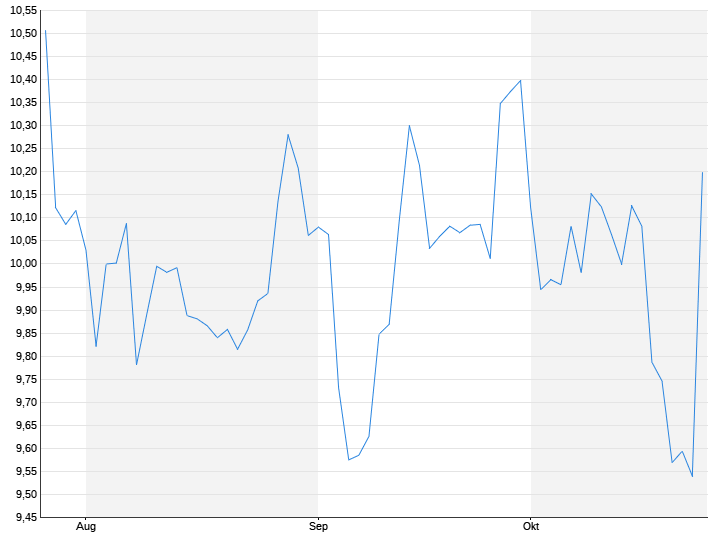Postbank backlog depresses profits
Deutsche Bank earns more than expected
October 25, 2023, 9:37 a.m
Listen to article
This audio version was artificially generated. More info | Send feedback
Higher taxes caused Deutsche Bank to suffer a decline in profits in the third quarter despite higher interest rates, which could continue in the fourth quarter. The future could still look bright for investors.
Deutsche Bank earned less in the third quarter due to weaker investment banking operations and an increased tax rate. Germany’s largest financial institution generated a net profit of 1.03 billion euros between July and September – a decline of eight percent within a year, as the financial institution in Frankfurt am Main announced. But that was clearly above the estimates of analysts, who had only expected around 937 million euros. It was already the 13th quarter in a row with profits for Germany’s industry leader.

“Our results demonstrate strong and sustainable growth dynamics in our business and ongoing cost discipline,” said CEO Christian Sewing. “The prospect of additional returns while maintaining strict risk management and continued cost discipline gives us confidence that we can accelerate the implementation of our strategy for growth and higher returns despite the uncertain economic environment.”
Group revenues increased by three percent to 7.13 billion euros in the quarter. Around 29 billion euros are expected for the full year 2023. The risk provisions for loan defaults amounted to 245 (Q3 2022: 350) million euros. Adjusted costs rose by 2 percent to 5.0 billion euros. The tax rate increased significantly to 30 from 23 percent.
Deutsche Bank was recently in the headlines here because of IT problems at Postbank. The financial institution had gradually taken over Postbank since 2009, but the integration was slow. Significant problems arose during the conversion of Postbank’s information systems, which was supposed to be completed in July. At times, customers could not access their accounts and customer service was difficult to reach.
Higher payout for shareholders?
“The additional funding required to clear the backlog will result in additional costs and delays to initiatives elsewhere in the bank,” the bank said in its quarterly report. In addition, the development of loan loss reserves in the fourth quarter could be affected “if cases are not processed in a timely manner or customers do not make scheduled payments on time.”
Sewing also promised shareholders a higher payout than planned. He is confident “that we can not only achieve the strategic goals we have set for 2025, but even exceed them,” he wrote in an employee letter. The bank has identified scope to release additional capital of three billion euros. “On the one hand, this gives us greater potential to increase distributions to our shareholders – beyond the eight billion euros up to and including 2025 that we had already announced.”
On the other hand, the bank could invest more in technology, controls and the business. Sewing also announced in the letter that Germany’s largest financial institution would reduce its balance sheet risks (RWA) more than previously promised. Instead of 15 to 20 billion by the end of 2025, this should fall by up to 30 billion euros. Sewing believes the institute is on the right track when it comes to dealing with the problems with the IT conversion of the Postbank subsidiary. Two thirds of the backlogs have been processed. “This gives us great confidence that we will be able to offer our customers the level of service that they rightly expect from us by the end of the year, as planned.”
